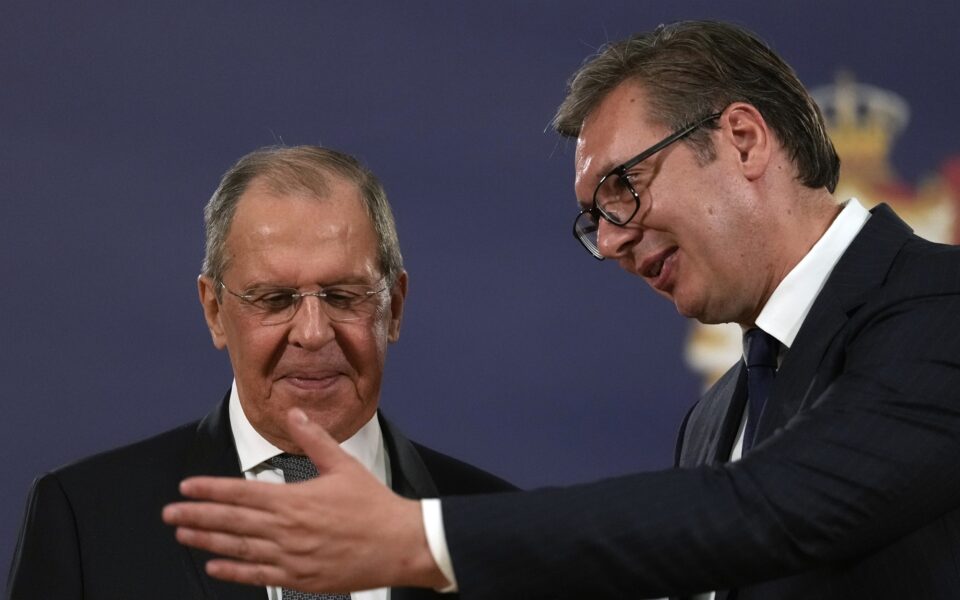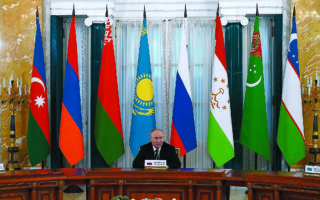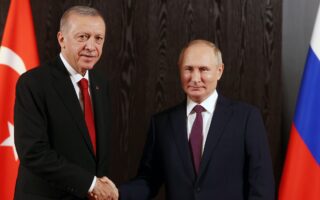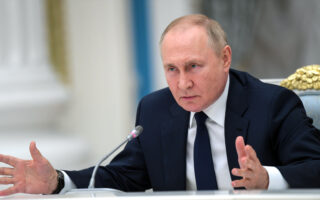Non-alignment and the G20 Summit

While devoted to world economic issues, the upcoming Bali summit will inevitably be focused on the war in Ukraine. Indonesian conference host Joko Widodo has visited both Moscow and Kyiv to investigate peacekeeping options. Debate over the war and Vladimir Putin’s participation at Bali have also dominated corridor conversation, and some states, including the US, have sought without success to remove Russia from the G20.
President Volodymyr Zelenskyy is an invited guest and likely to dominate the gathering, at least virtually, now that Putin will not attend, fearing isolation over Ukraine. A planned meeting of Biden and Xi will also be closely watched. The meeting occurs as a revived Non-Aligned Movement (NAM), cultivated by Russia, seeks to expand its influence and avoid taking positions on the war. While few of the Non-Aligned belong to the G20, they will have strong support in Bali from dual members India and South Africa.
Little reported in the West, the 60th anniversary of the Non-Aligned Movement (NAM) was celebrated in Belgrade in October 2021, where it had been founded by 25 states in 1961 under the tutelage of Marshal Tito, Gamal Abdel Nasser and Jawaharlal Nehru. And yet the NAM, largely dormant following the collapse of the Soviet Union, now boasts 120 members, 17 official observers and 10 international organizations, representing two thirds of UN membership and 55% of the world population. Prominent among observers at Belgrade was the ubiquitous Russian Foreign Minister Sergei Lavrov following a July 2021 invitation to Russia to become an official NAM Observer extended by then-chairman Ilham Aliyev, president of Azerbaijan.
The original Non-Aligned Movement came into being in the polarized environment of the Cold War, exploiting in particular the US-Soviet impasse at the United Nations. It was an opportunity for newly independent states to find strength in numbers and in the name of an ill-defined neutrality to seek assistance from both East and West. The fulcrum for the NAM was always the UN where the Movement substantially shaped the workings of the institution to the detriment, many observers believe, of Western interests. (See Jackson, Richard, “The Non-Aligned, the UN, and the Superpowers,” a Council on Foreign Relations Book, Westport, Ct: Praeger, 1983.)
Today, there is again a sharply polarized environment following the brutal and unprovoked February 24, 2022 Russian invasion of Ukraine. It is not surprising, therefore, that there are stirrings of revival within the NAM. On April 7, 2022, the UN General Assembly voted to expel Russia from the Human Rights Council by a majority of 93 member-states, while 58, largely NAM states, abstained. Along with Russia, China and North Korea, longtime Russian supporters within the NAM like Cuba, Vietnam and Syria predictably voted against.
The present situation is further exacerbated by Russia’s weaponization of food and fuel, forcing an extreme choice on vulnerable states between democracy and famine. There is thus danger that, as in the period from 1979-1983 when Fidel Castro as chairman hijacked the Movement, reaching an acme of anti-Americanism, the NAM is being reactivated under radical leadership and subject to both Russian and Chinese pressures.
Not only has the current NAM strayed far from the goals and ideals of its founders, but it has totally neglected the original criteria for membership, drawn up in Cairo in June 1961 in preparation for the first summit meeting in Belgrade. The five criteria, still in effect, include non-membership in multilateral military alliances related to great power conflicts, non-membership in bilateral or regional defense pacts related to great power conflicts, and non-acceptance of foreign military bases in the context of great power conflicts. And yet Belarus, host to Russian military bases including Spetsnaz units, Su-35 fighters, S-400 missile systems and 30,000 Russian troops, has served as a platform for the outrageous invasion of Ukraine and is listed as a NAM member in good standing. Nor is this just an anomaly; other members too have intimate defense and security relationships with Moscow.
With Vladimir Putin now regularly railing against the “rules-based order,” by which he presumably means the rule of law and postwar order that has kept the peace, many will and probably should question the viability and even morality of neutrality and non-alignment. The very presence of Russia as an official NAM observer with so many of its minions seated around the table as members makes a mockery of the founders’ claims to eschew blocs in favor of neutrality. It also explains their extreme reluctance or fear of condemning Russia for its rape of Ukraine. Another consequence has been the de-Europeanization of the NAM.
At the relatively moderate 1983 NAM Summit in New Delhi, a course correction from the Castro era, Cyprus, Malta and Yugoslavia were members while Austria, Finland, the Holy See, Portugal, Romania, San Marino, Spain, Sweden and Switzerland were all welcomed as official guests. Today these 1983 guests have been disinvited and the NAM memberships of Cyprus and Malta terminated. Some of these countries are now even EU members.
As Professor John Ciorciari of the University of Michigan concludes, the NAM is “sending the message that aggression and territorial seizure by major powers will be tolerated” and “missing the opportunity to defend the anti-imperial norms at the core of the NAM. The Movement’s members have profound interests in reasserting these norms on behalf of Ukraine, as they are among the most vulnerable to being next.” (Asia Times, April 23, 2022, reprinted from “The Conversation,” April 22.)
Richard Jackson is a former US diplomat and past president of Athens and Anatolia Colleges. His book “80 Years of US Diplomacy in Greece” will be published in Greek by Hestia in 2023.





